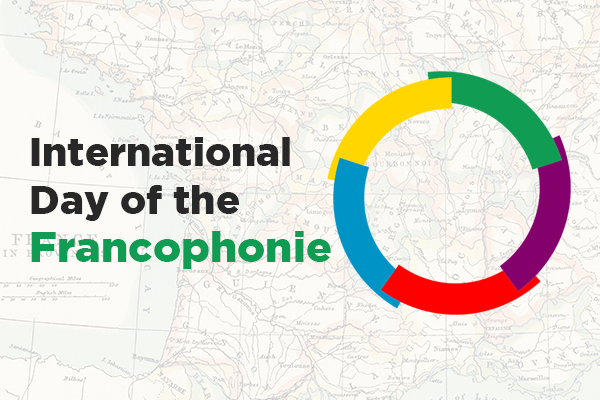
By Karl Lafrenière
Each year, my grandmother spends the greater part of the winter in Florida. For a few years now, I’ve been driving her car there so that she has the ability to run errands once she’s there. The first time I did that long drive to the Sunshine State, I travelled with my brother.
We stopped pretty regularly, picking up snacks for the road. One stop I’ll never forget was in South Carolina. It was late at night and we needed to get fresh supplies for the road ahead. When we entered the corner store, my brother and I were speaking French while we discussed what we intended to purchase. Once we made our way to the cash register, the cashier greeted us with a “Bonjour” and asked us, in French, if we had found everything we had been looking for.
My brother and I were surprised to hear this person speaking French to us, with a strong accent; we replied in English, as a means of accommodation.
The cashier was quick to tell us, once again in French: “No, please speak to me in French. I never have the chance to practice this great language, so when I have the opportunity, I take advantage of it.”
We happily finished our conversation in French.
Once we arrived in Florida, my brother and I decided to recount our corner store adventure to our grandmother. We were soon even more enthralled to learn that my grandmother’s friend had recently made a presentation to a conference held by the Alliance Française de Sarasota.
I’m proud to know that my language is sprinkled around the world; in the most unexpected places.
There is even an organization that represents Francophones across the world: the International Organization of La Francophonie. Created in 1970, its mission is to “embody the active solidarity between its 80 member states and governments (57 members and 23 observers), which together represent over one-third of the United Nations’ member states and account for a population of over 890 million people, including 220 million French speakers.”
Its members share the use of the French language and the values of “La Francophonie”, which includes working in solidarity to promote the French language, as well as cultural and linguistic diversity, democracy, human rights and education.
But even if someone doesn’t identify as Francophone, this doesn’t mean they’re not genuinely interested in our language. And it’s up to us, as Francophones, to foster that interest.
So, if I may, in conclusion, propose some friendly advice to my fellow Francophones: when someone attempts to speak with you in French – even if they struggle – don’t switch to English. We too often do this to be helpful, but I believe this isn’t helpful at all. We should embrace their efforts and provide them with a unique opportunity to practice our cherished language.
Karl Lafrenière is the regional vice-president for the Outside Canada region and a member of our francophone committee. This article was written as part of our union’s member journalism program. If you’d like to find out more, click here – to pitch a story or for any questions, please send an email to communications@une-sen.org.